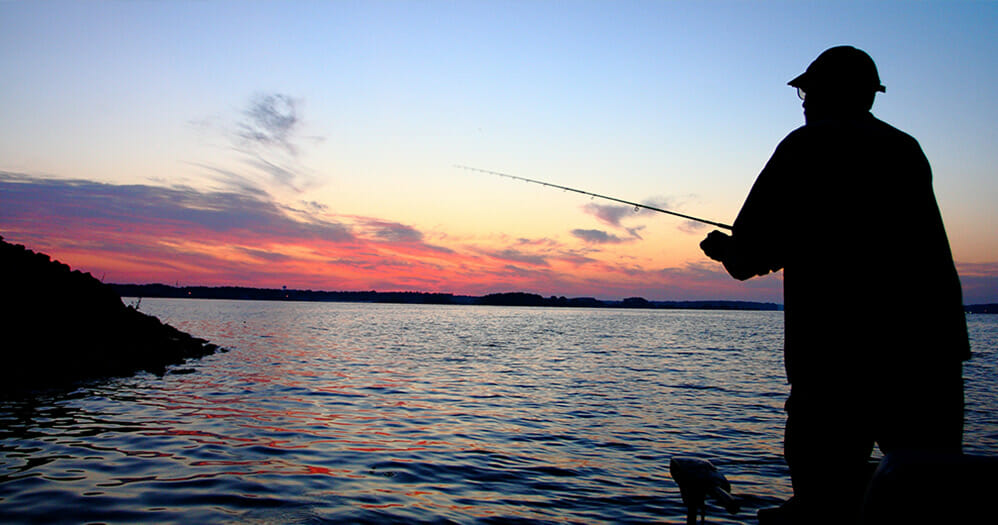 Each year, Mississippi hunters and outdoorsmen enjoy the many hunting and fishing opportunities our great state offers.
Each year, Mississippi hunters and outdoorsmen enjoy the many hunting and fishing opportunities our great state offers.
While September provides the first opportunity of the year to hunt, the seasons start to kick in when October arrives because that is when squirrel and bow season open. However, it is November when hunters really get excited – especially in my neck of the woods (the Mississippi Delta) – when the farming season comes to an end, the cool temperatures arrive, and the other hunting seasons open in earnest.
In 2015, Gov. Phil Bryan appointed me to serve as a Commissioner of the Mississippi Department of Wildlife, Fisheries and Parks (MDWFP). There are five of us (commissioners) who serve five-year terms, and we serve in our five respected zones around the state. My zone is the old Second Congressional District that starts in Tunica County and stretches down to Jefferson County. My district also covers the inside Delta counties, and it reaches east to the hills covering all (or portions of) Grenada, Montgomery, Carroll, then down to Holmes, Madison and Hinds Counties.
Toward that end, I’m often asked, “What does the Mississippi Department of Wildlife, Fisheries and Parks do for Mississippians?”
That is a good question and one I’m always delighted to answer.
Our stated mission is to conserve and manage Mississippi’s wildlife, fisheries and parks, and to provide outdoor recreation and engage the public in natural resource conservation. To fully appreciate the view where you are, sometimes it is necessary to look in the rearview mirror and compare Mississippi’s natural resources today to those of 85 years ago when Fannye Cook’s vision came to fruition in the establishment of the Mississippi Game and Fish Commission. The contrast is stunning.
The fact that it is easy for us to take our ample natural resource opportunities for granted, now is a testament to the agency’s many successes over the decades. If you haven’t thought lately about just how fortunate we really are, currently, consider how you and your family may have been affected by MDWFP programs and services.
If you have hunted white-tailed deer, wild turkey, wood ducks or alligators, you were able to do so because of the success of the agency stocking and population restorations efforts, including the protection through game regulations and a dedicated force of conservation officers. If you hunted on one of the 54 MDWFP wildlife management areas (WMAs), the direct opportunity afforded is obvious. If you hunted or fished on private land, there is still a good chance that technical guidance provided to the landowner by our agency’s wildlife biologists enhanced your opportunity. The very introduction to hunting for many young people now comes through the safe, structured environment or organized WMA youth dove, squirrel, turkey, waterfowl or deer hunts.
Much of what we know about sound wildlife management practices, including the regulations needed to implement them, came from MDWFP sponsored research. Application of habitat management techniques has enhanced many thousands of acres of public and private lands for resident and migratory game and non-game species through agency direction. Lands, waters and parks have been strategically acquired by MDWFP to support management, in perpetuity, of public areas for nature-based recreation and to provide habitat for fish and wildlife.
If your family fished the public lakes, streams and rivers of the state, they have benefitted from the stocking of millions of fish propagated by agency fisheries biologists. And, it is very likely that the boat ramp you used to access any of these public waters was constructed or supported by the MDWFP boating access program. If your child’s first fish was caught at an organized fishing rodeo, the agency probably supported it through hosting the event, providing the fish for it, or both. The many thousands of anglers who enjoy world-class crappie fishing in the reservoirs of northern Mississippi have that opportunity because of management, including regulations by the MDWFP.
For generations of Mississippians’ first camping experience, even those first s’mores, came at a state park that also offered fishing, hiking, boating, photography and nature study opportunities. The very first exposure to the natural world for many came courtesy of the exhibits and programs of the Museum of Natural Science, on site and throughout classrooms across the state. Lessons in the safe enjoyment of the outdoors were learned through the agency administered hunter and boating safety programs. Even public safety has been enhanced through MDWFP first responders during natural disasters such as hurricanes, tornados and floods.
The connection of Mississippians to the natural world far exceeds that of most of the country. This is not an accident, rather it is due to the ongoing dedication of the MDWFP to its conservation mission. If the momentum of 85 years of progress is maintained, it must be by that same dedication.
So, this is how the Mississippi Department of Wildlife, Fisheries and Parks adds to the lives of those who live here in the Delta and in Mississippi.

Scott Coopwood is a seventh-generation Deltan who lives in Cleveland, Mississippi with his wife Cindy and their three children. Scott is the publisher and owner of Delta Magazine, one of the South’s leading lifestyle publications, the Delta Business Journal, the first business publication in the Mississippi Delta; and Cleveland’s weekly newspaper, The Cleveland Current. He can be reached at scott@coopwood.net.
